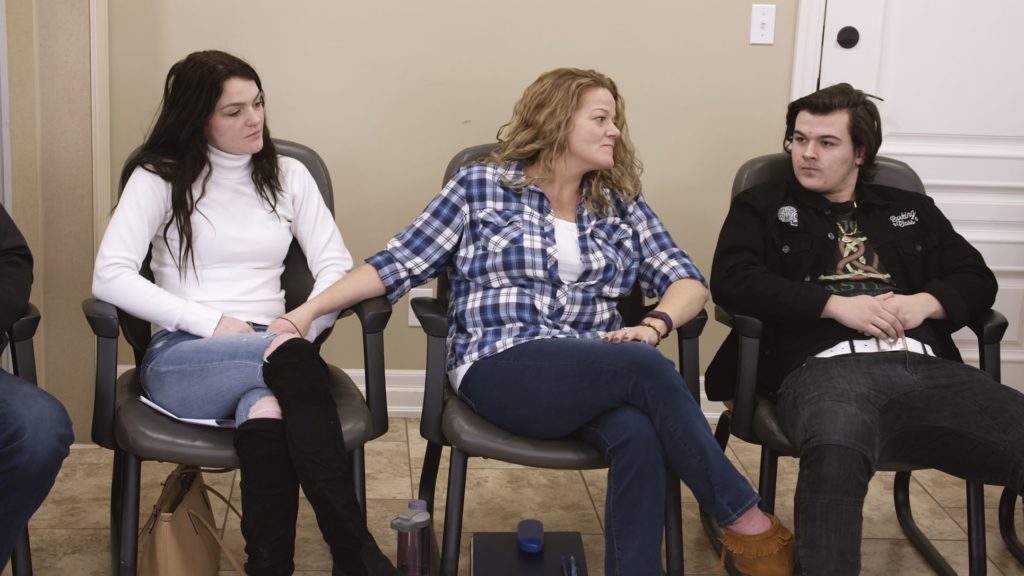Premiering January 25, this new documentary highlights four addicts’ journeys to come clean
Six million Canadians will meet the criteria for addiction in our lifetimes. COVID-19 has intensified the problem. Opioid-related deaths surged 25% in Ontario in the first few months of the pandemic and continue to be at a crisis point. Premiering Tuesday, January 25 at 9 pm ET on TVO, TVO.org, YouTube and TVO streaming channels, TVO Original Come Clean is a close look at what fuels addiction, as well as the herculean effort and hope recovery demands.
“The reality of addiction seriously impacts individuals, families and communities across Ontario,” says John Ferri, VP of Programming and Content at TVO. “With unflinching honesty, Come Clean shares the real struggle of overcoming addictions through deeply personal journeys—stories that most Ontarians will relate to.”
Written and directed by Derreck Roemer and Neil Graham of Insurgent Projects (Last Call at the Gladstone Hotel, The Lost Highway), TVO Original Come Clean begins on New Year’s Eve in the southwestern Ontario farming community of Thamesville, home to Westover Treatment Centre. Cameras roll as the dozen addicts in group 1313 embark on 19 days of in-treatment counselling.
With intimate and unfettered access, the filmmakers embedded round-the-clock at Westover, living alongside the program participants. Post-treatment, filming followed select subjects’ stories for 18 months to experience their realities and see who among them could break the habits that landed them in rehab.
Bryanna, Annie, Ryan and Julie, the featured four from group 1313, are as different as their backstories. Ranging in age from their teens to their forties, the common through-line is shame and guilt from early-life traumas that they’ve been unable to overcome thus far. Come Clean isn’t about wallowing in the depths, but the valiant efforts to rise out of addiction’s malaise
Freed from drugs during treatment at Westover, the film’s subjects are lucid, smart and funny, with a startling degree of self-awareness. But staying clean in rehab is the easy part. The hard work begins once program participants reenter the turmoil of the world.
For filmmakers Roemer and Graham, who specialize in long-term projects, Come Clean challenged them to work in a distinctly different way. With the understanding that each additional day an addict waits for treatment puts them further at risk, Westover admits clients quickly—which meant the filmmakers didn’t know who their subjects would be until two weeks before filming commenced.
“Westover’s admissions staff asked prospective clients if they’d participate in a doc film,” says Roemer, “and we spent the next two weeks crisscrossing the province to meet those who’d consented, knowing the next time we saw them would be on day one of filming.” It was, says Roemer, “equal parts stressful and invigorating.”
Directors Graham and Roemer wanted to get to the root of why we’re increasingly vulnerable to addiction. Graham’s own bout with a painkiller dependency was an eye-opening experience for him. “Any one of us is susceptible to addiction,” he said. “With astronomically high rates of addiction to sex, gambling, food, drugs and technology—where a misplaced cell phone precipitates a crisis—none of us are safe from its reach.”
According to Westover’s Laird Brush, addicts can stay clean by changing one thing: “Everything. The way you think, the way you feel, the way you behave, where you work, where you live, and who you hang out with.” But if everything is the goal, what’s the reality? How many will be able to make the wholesale changes necessary to redeem a life?
TVO Original Come Clean’s featured four:
Bryanna arrived at Westover a victim of a brutal upbringing at the hands of violent, negligent parents. After bouts of bingeing led to suicidal tendencies, twenty-something Bryanna’s goals are realistic. “I just want to feel OK,” she says. But with her emotional growth stunted by trauma, the main obstacle, according to a counselor, will be overcoming “the mind of a child in a woman’s body.”
Annie came to treatment in her early forties as a self-described “mess” with a history of addiction to alcohol, food, gambling and drugs. Her Achilles heel is her alcoholic husband Chris, who Annie, initially, believed to be an asset in her recovery. But in treatment, she learns he puts her at greatest risk for relapse. “He’s the best thing that’s ever happened to me,” she says. “And maybe the worst.”
Ryan, by his late teens, was a small-town drug kingpin. But arrest and incarceration brought his world tumbling down. His enrollment at Westover is a condition of his parole, and a relapse could lead him straight back to jail. Clear-eyed about his chances for success, Ryan knows abstinence will be hard. “Probably the hardest thing I’ll ever do in my life,” he says.
Julie is a strong-willed Windsor auto worker and mother of two young adults who had an intense cocaine addiction. A prime example of Westover’s mantra that addiction is a response to trauma, Julie’s recovery begins when she confronts her childhood and an event that’s shrouded her life in regret, shame and guilt.
Watch the premiere of TVO Original Come Clean on Tuesday, January 25 at 9 pm ET on TVO, TVO.org, YouTube and other TVO streaming channels. Viewers can also access the latest on TVO documentary news and insights by signing up for the forthcoming TVO Docs Newsletter at TVO.org/newsletters.
